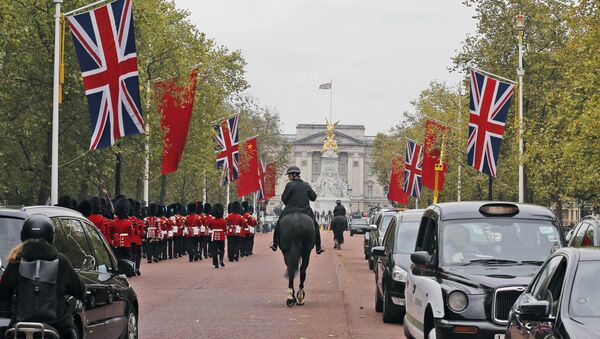The UK and China continue to deepen bilateral collaboration; however, while London's rationale to build partnerships across the world ahead of its withdrawal from the EU is clear, China may face certain difficulties, analysts told Sputnik.
"Judging from the current situation, the basis for pragmatic cooperation and the signing of a free trade agreement between China and the UK needs to be further strengthened and developed," said Liu Dan, a researcher at the Chongyang Institute for Financial Studies (RDCY) of Renmin University of China. "China has long consistently supported multilateral and bilateral mechanisms for cooperation in the field of free trade within the World Trade Organization's (WTO) framework."
"For example, the institutionalization of cooperation related to the free trade zone, the alignment of the national governments of the two countries, the implementation of international standards and rules by both parties, as well as the lowering of the threshold for access to each other's markets," he elaborated.
For her part, Kira Godovanyuk, a specialist from the Institute of Europe at the Russian Academy of Sciences, warned against jumping to conclusions before the UK's withdrawal from the EU. The Russian scholar cast doubt on Britain's ability to effectively negotiate after it pulls out from the bloc.
"The last proposal of the UK government implies that, at least with regard to trade in goods, it will remain in the common European market and the Customs Union," Godovanyuk pointed out. "This entails impossibility of concluding agreements on free trade with third countries. China is discussing these prospects very cautiously, and, of course, it will wait for the end of the process of Britain's withdrawal from the EU."
On August 25, China's Commerce Ministry announced that London and Beijing had agreed to look at the possibility of concluding free trade agreement after the UK leaves the European Union. The statement was preceded by talks between British Secretary of State for International Trade Liam Fox and Chinese Commerce Minister Zhong Shan, which took place on August 24, in Beijing.
And this is not the only example of how the two countries are making efforts to strengthen the "golden era" in bilateral relations that was formally launched in October 2015 when Chinese President Xi Jinping paid an official visit to London. During recent talks with his Chinese counterpart, Fox expressed hope for bolstering political cooperation with China and increasing interaction in the field of investment and trade.
The British international trade secretary signaled Britain's commitment to free trade and stressed that London opposed unilateralism and protectionism, adding that he hoped that Beijing and Washington would manage to solve their differences.
For his part, Fox stressed that the British delegation would be led by Prince Andrew. The two countries also agreed to bolster collaboration within the framework of the Belt and Road initiative. It is expected that Chinese and British companies will cooperate to explore the markets of third countries.
In late July, Britain's new foreign secretary, Jeremy Hunt, met with Chinese Premier Li Keqiang, Politburo member Yang Jiechi and Foreign Minister Wang Yi. It was during this meeting that the idea of the bilateral free trade agreement emerged and it took less than a month for London to signal its endorsement of the Chinese initiative.
The views and opinions expressed by the speaker do not necessarily reflect those of Sputnik.





